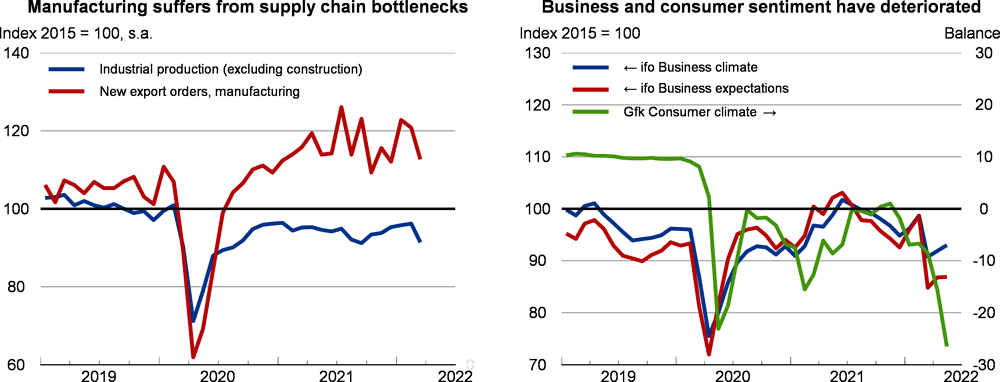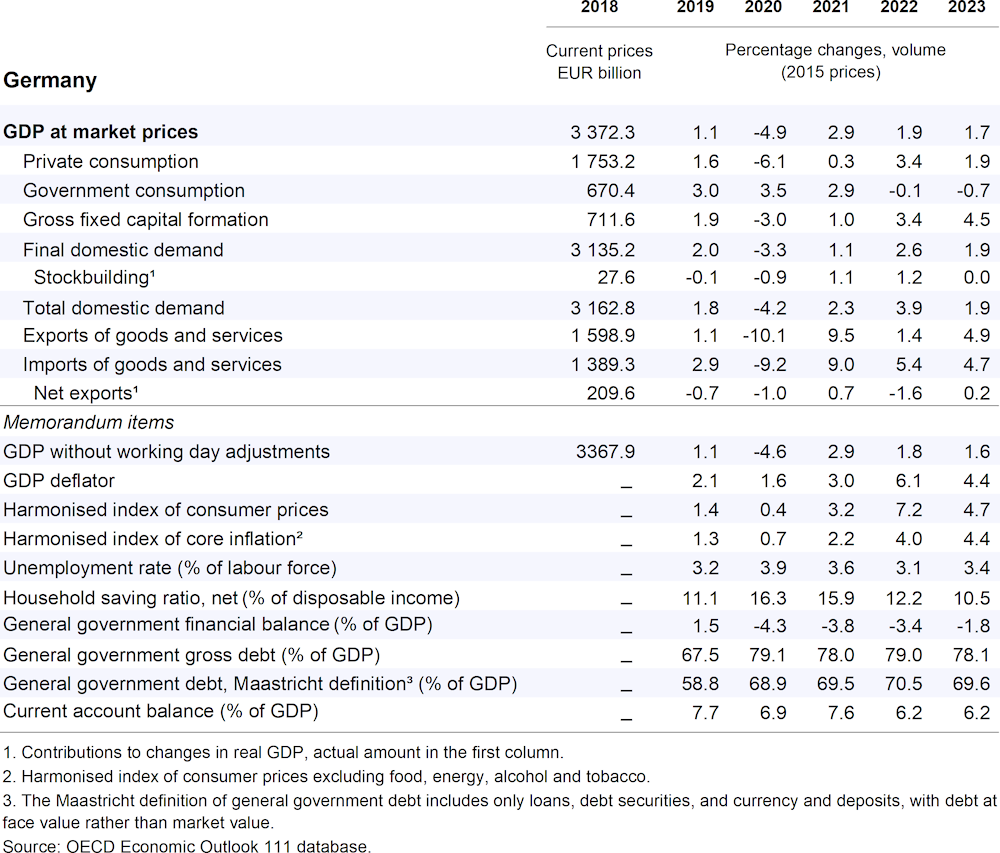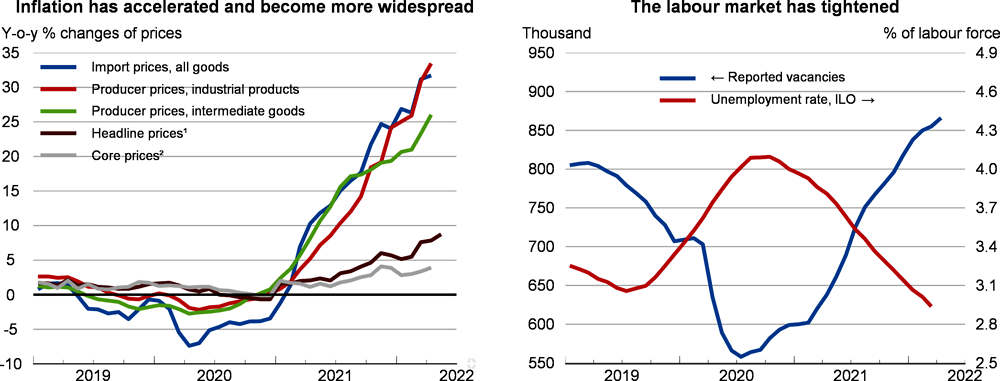The economy is projected to grow by 1.9% in 2022 and 1.7% in 2023, with the recovery hampered by the war in Ukraine, and an embargo on Russian oil. Rising inflation is reducing household purchasing power, damping the rebound of private consumption. Investor and consumer confidence have collapsed and supply chain bottlenecks have worsened, postponing the recovery of industrial production and exports towards the end of 2022, despite a large order backlog. The recovery could be further derailed by a sudden stop of gas imports from Russia or more persistent lockdowns in China.
Fiscal support programmes to mitigate the effects of rising energy and food prices need to be well targeted to vulnerable households and firms. Boosting infrastructure investment and improving planning and approval procedures and capacity, particularly at the municipal level, would accelerate digitalisation and the energy transition, which is crucial to lower dependency on energy imports. Skilled labour shortages will need to be addressed by raising the labour supply of women, elderly and low-skilled workers, improving training and adult learning, and lowering occupational licensing requirements to ease transitions to jobs in high demand. This should be complemented by facilitating the recognition of the qualifications of migrants and refugees.


